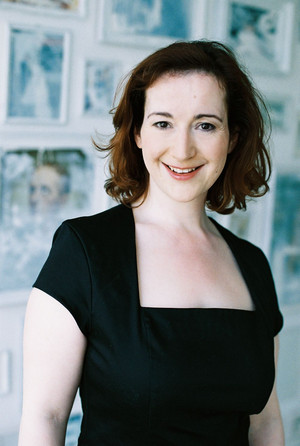Mia Kaspari

Mia Kaspari arbeitet in öffentlichen Räumen mit Laien und Profis. Ihr Stil: ein Theater, das lebt, liebt, lacht, das sich erzählt, auch und vor allem ohne Worte, das Geheimnisse hat und magische Momente erschafft. Ihre Inszenierungen u.a.: 2005 / 06 „Infernale, anonym“ im HISTORISCHEN BUNKER der Berliner Unterwelten e.V., eine Raumperformance über die Opfer-Täter-Rollen der Frauen im 2. Weltkrieg. ZITTY / Dez. 05: „Mia Kasparis visionäre Szenen erinnern an den 2. Weltkrieg und damit an das Leid aller Kriege... Ein immer notwendiges Thema wird darstellerisch und räumlich brillant dargestellt“. 2007 „Me-DE(A)-Fusion“ im 1914 erbauten U-BAHNHOF am Alfred-Döblin-Platz; eine Raumperformance über Medea, Liebe, Terror, Tod, Flucht u. Asyl. THEATER DER ZEIT / Nov. 07 schrieb: “... Mia Kasparis Inszenierung dürfte zu den ungewöhnlichsten Theaterabenden der begonnenen Spielzeit gehören ... Es thematisiert mit großer inszenatorischer Kraft die Frage, wie Gewalt entsteht und was die Folgen sind“.
Mia Kaspari works in public spaces with amateur and professionals. Her style: a theatre that lives, loves, laughs, narrates itself, also and above all, without words, has secrets and creates magical moments. Her productions, e.g.: 2005 / 06 “Infernal, anonymous” in the HISTORICAL BUNKER of the Association of Berlin Underworlds, a spatial performance on female victim-perpetrator roles during World War II. ZITTY / Dec. 05: “Mia Kaspari’s visionary scenes are reminiscent of World War II and therefore, the suffering of all wars... dramatically and spatially brilliant.” 2007 “Me-DE (A) Fusion” in the 1914 built subway station, Alfred Döblin Square, a spatial performance on Medea, love, terror, death, displacement and asylum. THEATER DER ZEIT / Nov. 07 wrote: “... Mia Kaspari’s piece is probably one of the most unusual theater evenings of this beginning season ... It deals with great dramatic force with the question of how violence emerges and what the consequences are”.
